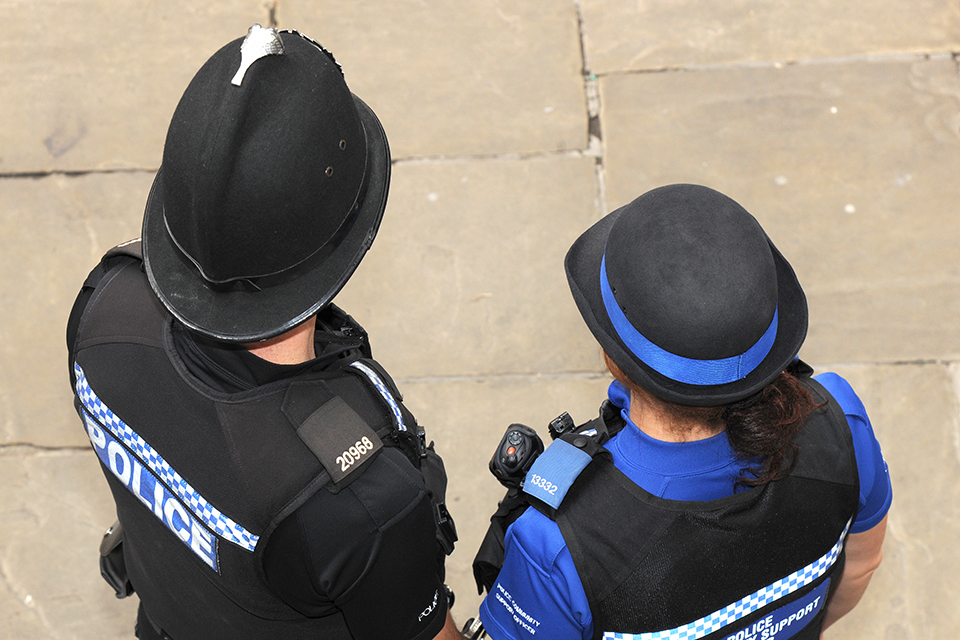Stop and search: Theresa May announces reform of police stop and search
Home Secretary Theresa May announces a major package of measures to reform the way the police use stop and search powers.

police line
While stop and search is undoubtedly an important police power, when it is misused it can be counter-productive. It can be an enormous waste of police time and, when innocent people are stopped and searched for no good reason, it is hugely damaging to the relationship between the police and the public.
The Home Secretary today (30 April) announced that she intends to revise the Police and Criminal Evidence Act Code of Practice A to make clear what constitutes “reasonable grounds for suspicion” – the legal basis upon which officers carry out the vast majority of stops.
The revised code will emphasise that where officers are not using their powers properly they will be subject to formal performance or disciplinary proceedings.
Stop and search
The Home Secretary has written to all chief constables and police and crime commissioners (PCCs), telling them to adhere to the code’s requirement that they should make arrangements for public scrutiny of stop and search records so communities can hold forces to account. She has told them that if they do not do so, the government will bring forward legislation to make this a statutory requirement.
The Home Secretary has also commissioned the College of Policing to review the national training of stop and search for all officers and introduce an assessment of officers’ fitness to use stop and search powers. If they fail this assessment, they will not be allowed to use these powers.
Furthermore, the Home Office will work with chief constables and PCCs to explore the possibility of recording information on the use of stop and search via the new Emergency Services Network.
Stop and search: Best use
The Home Secretary also announced today that this summer the Home Office and College of Policing will launch a new “Best Use of Stop and Search” scheme. It already has the backing of the Metropolitan Police, the biggest user of stop and search in the country, and all other police forces in England and Wales will be invited to sign up.
Forces participating in the scheme must:
- Record the outcome of stops in more detail to show the link – or lack of a link – between the object of the search and its outcome, allowing an assessment of how well forces interpret the “reasonable grounds for suspicion” they are supposed to have. They must also record a broader range of outcomes, such as penalty notices and cautions, so it can be understood how successful each stop and search is.
- Allow members of the public to apply to accompany officers on patrol to help improve the community’s understanding of the police.
- Introduce a stop and search complaints “community trigger” so forces must explain to the public how powers are used if they receive a large volume of complaints.
- The Home Secretary said forces must make clear that they will respect law established in the recent Roberts case by only using the Section 60 “no suspicion” stop and search power when it is “necessary to prevent incidents involving serious violence” rather than just “expedient” to do so. For those participating in the Best Use of Stop and Search scheme, use of Section 60 must also be authorised by a chief officer who must reasonably believe that violence “will” take place rather than “may” take place, as it stands now. Forces must also limit its application to 15 hours and communicate with communities before and after, so residents can be kept informed of the purpose and success of the operation.
The Home Secretary also announced that stop and search data will be added to crime maps at www.police.uk to improve transparency and accountability; and that she has asked HM Inspectorate of Constabulary to include use of stop and search in its new annual general inspections which begin towards the end of this year. She has also commissioned HMIC to review all other police powers similar to stop and search – including Section 163 of the Road Traffic Act - with a view to eliminating any unfair or inappropriate use.

police
Stop and search: Reform
Home Secretary Theresa May said:
Nobody wins when stop and search is misapplied. It is a waste of police time. It is unfair, especially to young black men. It is bad for public confidence in the police.
The proposals I have outlined today amount to a comprehensive package of reform. I believe that they should contribute to a significant reduction in the overall use of stop and search, better and more intelligence-led stop and search and improved stop-to-arrest ratios.
But I want to make myself absolutely clear: if the numbers do not come down, if stop and search does not become more targeted, if those stop-to-arrest ratios do not improve considerably, the government will return with primary legislation to make these things happen.
Stop and search: Review
Today’s announcement follows 2 major reviews of the police’s use of stop and search.
Last year the Home Secretary commissioned HM Inspectorate of Constabulary to inspect every force in England and Wales to see how the powers were being used.
The Home Office also carried out a broad consultation to make sure all members of the public – particularly young people and people from ethnic minority backgrounds – could have their say. More than 5,000 responses were received via online surveys, social media and police.uk, as well as bespoke consultation events.
-
HMIC found 27% of stop and search records they examined did not contain reasonable grounds to search people, even though many had been endorsed by supervising officers. If the HMIC sample is accurate, that means more than a quarter of the 1 million or so stops carried out under the Police and Criminal Evidence Act last year could have been illegal
-
Official figures show that you are up to 7 times more likely to be stopped and searched by the police if you are black or from an ethnic minority background than if you are white
-
Only about 10% of stops nationally currently result in an arrest